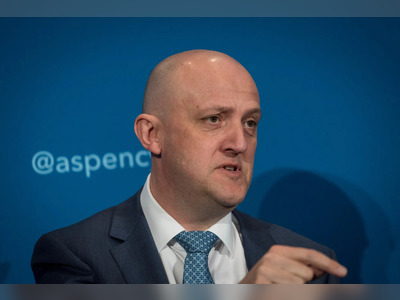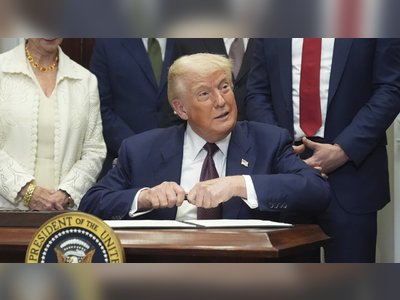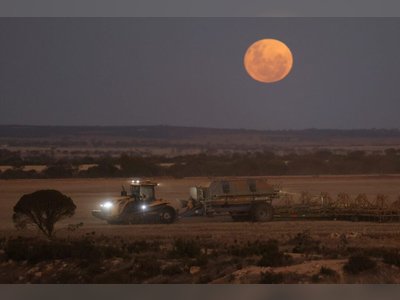Anthony Albanese to Undertake Second Official Visit to China Amid Renewed Diplomatic Engagement
Prime Minister Albanese's upcoming trip to China aims to enhance Australia-China relations, following previous economic and diplomatic advancements.
Prime Minister Anthony Albanese is scheduled to visit China later this year, meeting with President Xi Jinping and Premier Li Qiang, marking his second official visit in two years.
The trip will coincide with the Annual Leaders' Meeting, which is part of a high-level dialogue initiative that resumed after a hiatus, last occurring in Canberra in June 2024 during Premier Li's visit to Australia.
This forthcoming visit follows a personal letter from President Xi congratulating Albanese on his re-election, wherein Xi underscored China's intention to foster a 'more mature, stable and productive' relationship with Australia.
Such gestures indicate Beijing's strategic interest in establishing sustained engagement with the current Labor government, particularly as Albanese has emphasized stabilizing ties with China as a core foreign policy goal.
Albanese's initial visit to China in November 2023 was widely regarded as a diplomatic breakthrough, resulting in the release of Australian journalist Cheng Lei after three years in detention and the lifting of trade barriers enforced during the previous Coalition government's term.
While the exact date of the upcoming meeting remains unannounced, it is anticipated to further solidify the 'comprehensive strategic partnership' between the two nations.
The announcement of Albanese's visit comes shortly after his trip to Indonesia, where he engaged with President Prabowo Subianto, and his participation in meetings in Rome, including discussions with Ukraine's President Volodymyr Zelenskyy and attending the inauguration of Pope Leo XIV.
The meetings in China are expected to take place amid a temporary pause in the ongoing tariff dispute between the United States and China, which is set to last 90 days.
This hiatus may provide an opportunity for middle powers, including Australia, to advance their diplomatic and economic agendas, although Australia is not directly embroiled in the trade conflict.
Experts note that while the visit signals a return to normalcy in Australia-China relations, Australia faces the ongoing challenge of balancing its economic dependence on China with its security ties to the United States.
This balancing act has been complicated in recent years, particularly under former President Donald Trump.
China aims to reinforce economic partnerships as global trade dynamics continue to shift.
Australia, which has traditionally relied on China as its largest export market—valued at over $210 billion annually—has seen the reopening of trade pathways under Albanese’s leadership.
Since May 2022, over 40 official Chinese delegations have visited various levels of Australian government, primarily focusing on trade, education, clean energy, and cultural exchange.
During the upcoming discussions, China's application to join the Comprehensive and Progressive Agreement for Trans-Pacific Partnership (CPTPP) is expected to be a salient topic.
Australia, serving as the chair of the pact in 2024, holds a crucial role, as all member economies must unanimously approve any new applicant.
China’s long-standing bid faces sensitive diplomatic implications, particularly due to Taiwan's simultaneous attempt to join, which complicates the process due to China's objections to Taiwan's participation.
Furthermore, Albanese is likely to address several contentious issues, including human rights concerns and the treatment of detained individuals such as Australian writer Yang Hengjun, who has been imprisoned in China under espionage charges that he denies.
Yang expressed gratitude to the Australian government for its ongoing efforts to advocate for his release in a recent open letter from prison.
The implications of China's recent decision to grant 30-day visa-free entry to Australian citizens until the end of 2025 have already increased travel interests, evidenced by a significant rise in Australians visiting China.
According to Australian Bureau of Statistics, travel numbers surged to 580,500 in 2024, representing an 85 percent increase from the previous year.
In addition to tourism and education discussions, further easing of trade barriers and exploring two-way investments, including potential cooperation in renewable energy, are anticipated topics at the upcoming meeting.
The lease of Darwin Port to the Chinese company Landbridge remains a focal point of national security debates within Australia.
The trip will coincide with the Annual Leaders' Meeting, which is part of a high-level dialogue initiative that resumed after a hiatus, last occurring in Canberra in June 2024 during Premier Li's visit to Australia.
This forthcoming visit follows a personal letter from President Xi congratulating Albanese on his re-election, wherein Xi underscored China's intention to foster a 'more mature, stable and productive' relationship with Australia.
Such gestures indicate Beijing's strategic interest in establishing sustained engagement with the current Labor government, particularly as Albanese has emphasized stabilizing ties with China as a core foreign policy goal.
Albanese's initial visit to China in November 2023 was widely regarded as a diplomatic breakthrough, resulting in the release of Australian journalist Cheng Lei after three years in detention and the lifting of trade barriers enforced during the previous Coalition government's term.
While the exact date of the upcoming meeting remains unannounced, it is anticipated to further solidify the 'comprehensive strategic partnership' between the two nations.
The announcement of Albanese's visit comes shortly after his trip to Indonesia, where he engaged with President Prabowo Subianto, and his participation in meetings in Rome, including discussions with Ukraine's President Volodymyr Zelenskyy and attending the inauguration of Pope Leo XIV.
The meetings in China are expected to take place amid a temporary pause in the ongoing tariff dispute between the United States and China, which is set to last 90 days.
This hiatus may provide an opportunity for middle powers, including Australia, to advance their diplomatic and economic agendas, although Australia is not directly embroiled in the trade conflict.
Experts note that while the visit signals a return to normalcy in Australia-China relations, Australia faces the ongoing challenge of balancing its economic dependence on China with its security ties to the United States.
This balancing act has been complicated in recent years, particularly under former President Donald Trump.
China aims to reinforce economic partnerships as global trade dynamics continue to shift.
Australia, which has traditionally relied on China as its largest export market—valued at over $210 billion annually—has seen the reopening of trade pathways under Albanese’s leadership.
Since May 2022, over 40 official Chinese delegations have visited various levels of Australian government, primarily focusing on trade, education, clean energy, and cultural exchange.
During the upcoming discussions, China's application to join the Comprehensive and Progressive Agreement for Trans-Pacific Partnership (CPTPP) is expected to be a salient topic.
Australia, serving as the chair of the pact in 2024, holds a crucial role, as all member economies must unanimously approve any new applicant.
China’s long-standing bid faces sensitive diplomatic implications, particularly due to Taiwan's simultaneous attempt to join, which complicates the process due to China's objections to Taiwan's participation.
Furthermore, Albanese is likely to address several contentious issues, including human rights concerns and the treatment of detained individuals such as Australian writer Yang Hengjun, who has been imprisoned in China under espionage charges that he denies.
Yang expressed gratitude to the Australian government for its ongoing efforts to advocate for his release in a recent open letter from prison.
The implications of China's recent decision to grant 30-day visa-free entry to Australian citizens until the end of 2025 have already increased travel interests, evidenced by a significant rise in Australians visiting China.
According to Australian Bureau of Statistics, travel numbers surged to 580,500 in 2024, representing an 85 percent increase from the previous year.
In addition to tourism and education discussions, further easing of trade barriers and exploring two-way investments, including potential cooperation in renewable energy, are anticipated topics at the upcoming meeting.
The lease of Darwin Port to the Chinese company Landbridge remains a focal point of national security debates within Australia.
AI Disclaimer: An advanced artificial intelligence (AI) system generated the content of this page on its own. This innovative technology conducts extensive research from a variety of reliable sources, performs rigorous fact-checking and verification, cleans up and balances biased or manipulated content, and presents a minimal factual summary that is just enough yet essential for you to function as an informed and educated citizen. Please keep in mind, however, that this system is an evolving technology, and as a result, the article may contain accidental inaccuracies or errors. We urge you to help us improve our site by reporting any inaccuracies you find using the "Contact Us" link at the bottom of this page. Your helpful feedback helps us improve our system and deliver more precise content. When you find an article of interest here, please look for the full and extensive coverage of this topic in traditional news sources, as they are written by professional journalists that we try to support, not replace. We appreciate your understanding and assistance.










